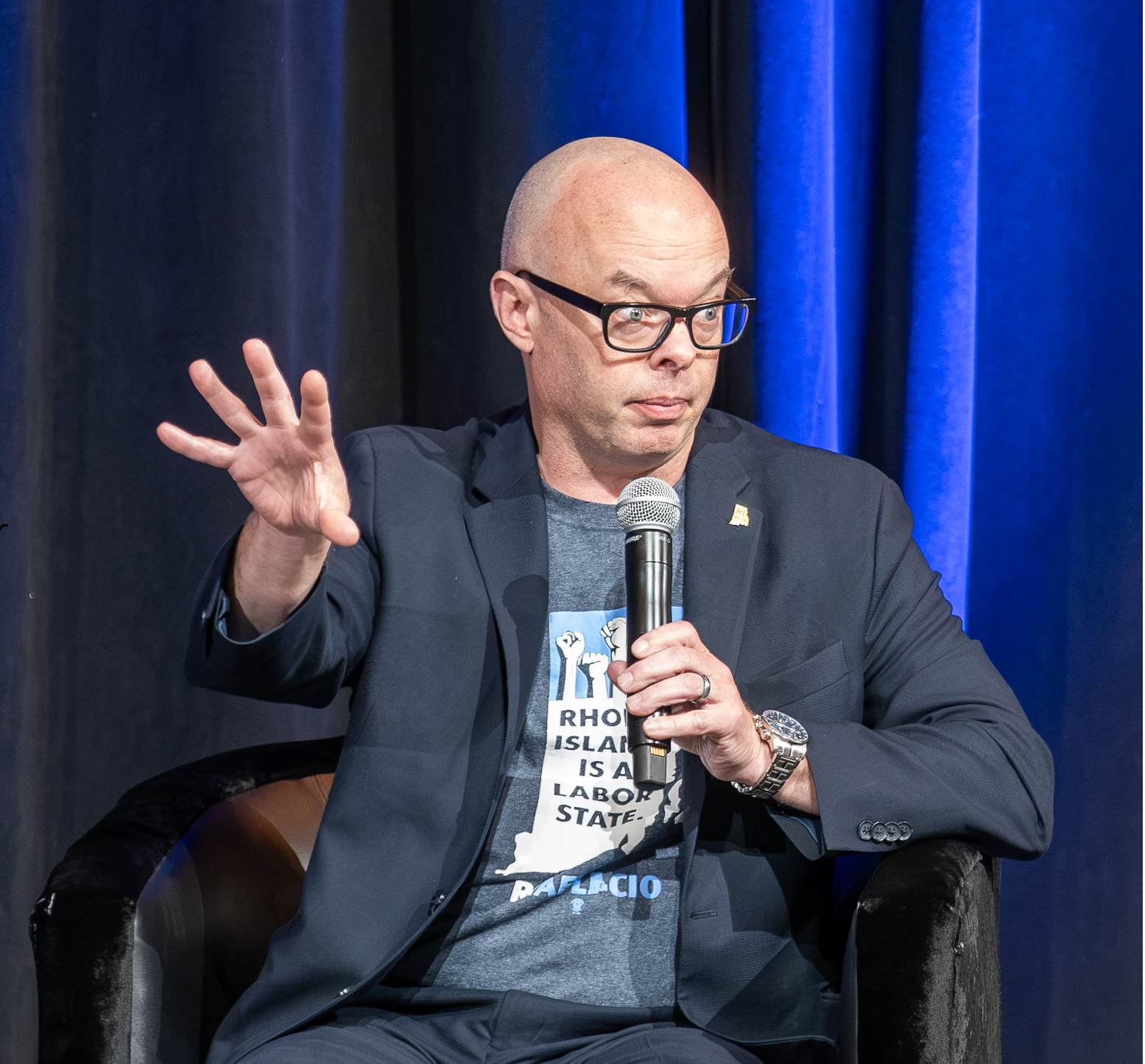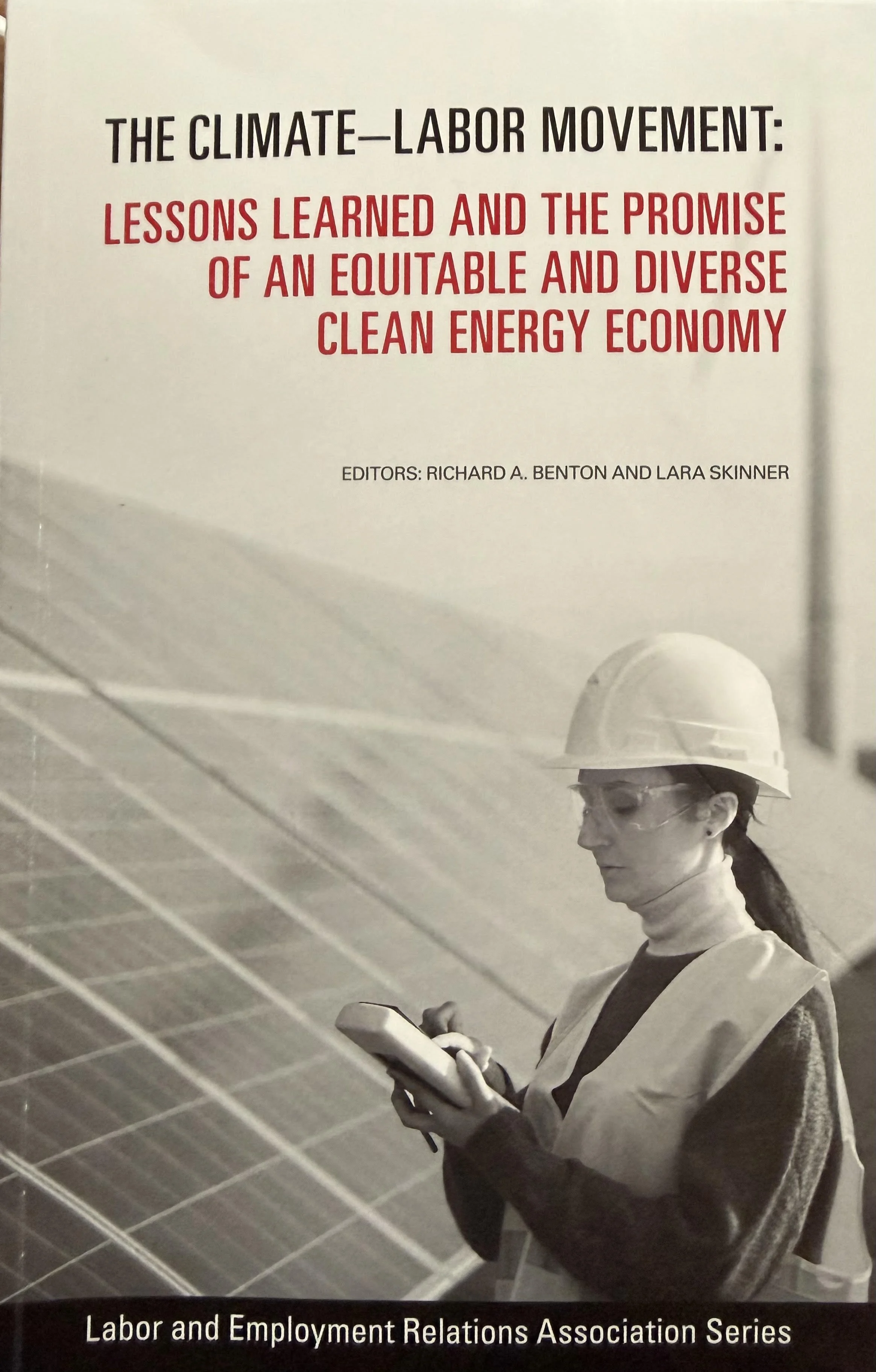
The Battle of the gravestones & The Saylesville Massacre of 1934
by Patrick Crowley
In September of 1934, striking workers in Rhode Island fought a week-long street battle against the Rhode Island National Guard in the tiny mill village of Saylesville. Two workers were killed and dozens seriously wounded when Rhode Island Governor T.F. Green ordered the soldiers to restore order. But the facts leading up to the Saylesville Massacre are murky at best. The Battle of the Gravestones & The Saylesville Massacre of 1934 explains why the story passed down through history needs another look.
In a provocative new telling, labor historian Patrick Crowley challenges the conventional history of the Saylesville Massacre. The book brings to life the characters behind the events of the strike, including union leaders, politicians, striking workers and bosses and asks hard questions about why the strike in Rhode Island produced such a violent response. A union organizer himself for more than 25 years, Crowley adds a street-level perspective to a story that other versions have missed.
A presentation to the Rhode Island Labor History Society about the Saylesville Massacre.
Newsreel footage from the strike in 1934
Newsreel footage from the strike in 1934
Rare video footage from the streets of Saylesville.
“We are face to face now, not with a textile strike, but with a Communist uprising”
About PAtrick
Patrick Crowley is the President of the Rhode Island AFL-CIO. Pat has been a union organizer for the last 30 years, serving at various times with the Teamsters, SEIU, and NEA Rhode Island. Named one of the most influential Rhode Islanders by The Providence Business News, Pat holds masters degrees in Labor Studies from the University of Massachusetts Amherst and History from the University of Rhode Island. In 2021, Pat helped found Climate Jobs Rhode Island, a broad and growing coalition of labor, environmental, and community partners committed to a just transition to a green economy. He also serves on the boards of several organizations, including the Institute for Labor Studies and Research, the Rhode Island Commerce Corporation, the Rhode Island Public Transit Authority (RIPTA), and Delta Dental of Rhode Island. In 2021, Pat published an essay in the journal “Rhode Island History” about workers organizing against racial discrimination in Providence during World War 2 and in 2022 published a book titled The Battle of the Gravestones and the Saylesville Massacre of 1934 about the 1934 general textile strike. In 2024, he contributed a chapter in the book Power Lines Building a Labor–Climate Justice Movement published by The New Press and in 2025 published an essay in the Journal of the Labor and Employment Research Association titled “Industrial Environmental Policy: Markets, Labor, and the Rhode Island Experiment.”
A member of the AMC’s 4000 footers club, Pat enjoys hiking throughout New England, especially in Rhode Island’s own Lincoln Woods, of which he published an interactive map, found at ExploreLincolnWoods.Com. A father of three adult children, Pat lives in Saylesville, Rhode Island, with his wife Karen.
“Organizing Climate Jobs Rhode Island,” in
Power Lines: Building a Labor–Climate Justice Movement
Edited by: Jeff Ordower Lindsay Zafir
Also by the Author
“Industrial Environmental Policy: Markets, Labor, and the Rhode Island Experiment.” in:
The Climate-Labor Movement: Lessons Learned and the Promise of an Equitable and Diverse Clean Energy Economy.
Edited by Richard A. Benton and Lara Skinner











